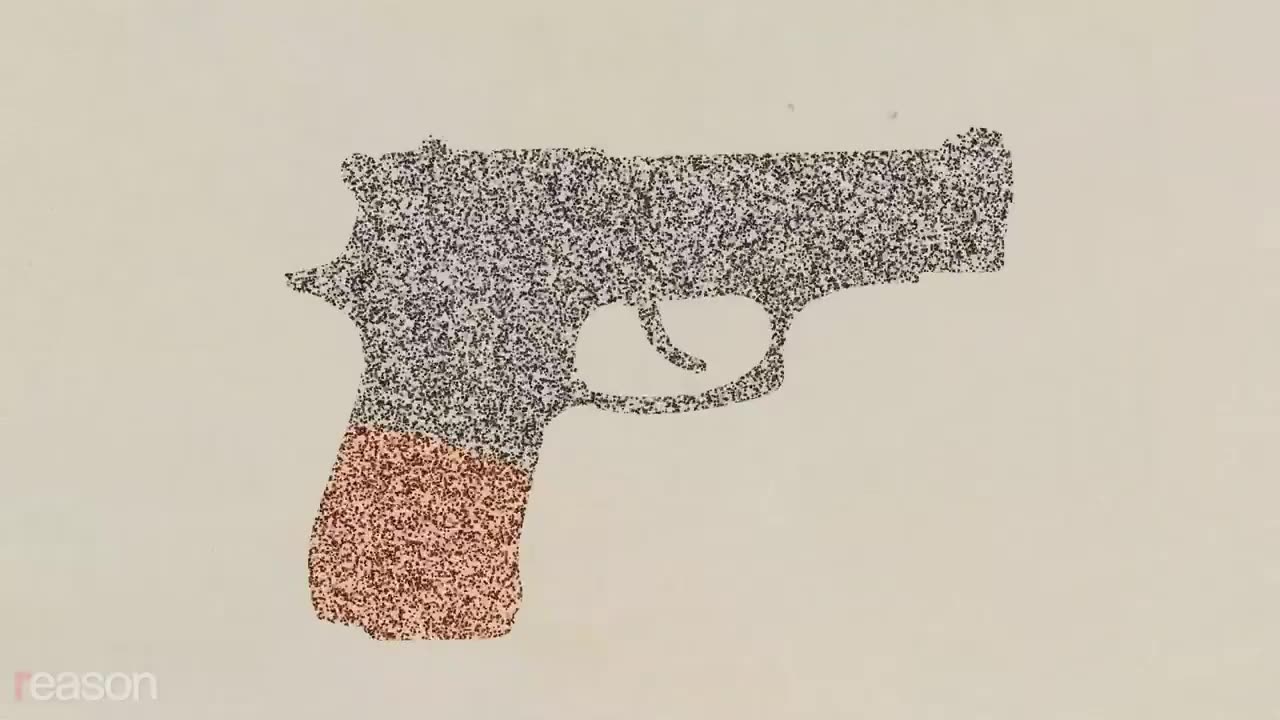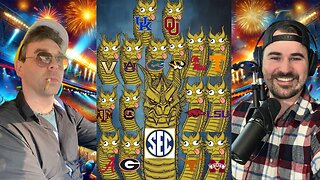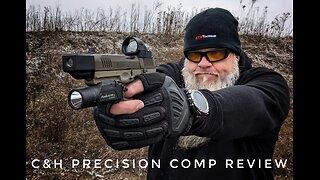Premium Only Content

Guns aren’t a public health issue
The New York Times published an 11-minute documentary in June titled "'It Was Really a Love Story.' How an N.R.A. Ally Became a Gun Safety Advocate," which tells a heartwarming story of how friendship transcended political differences and convinced a right-wing partisan to come to terms with the truth about firearms.
The film stars a couple of improbable friends: Dr. Mark L. Rosenberg, who for many years oversaw research on gun violence at the Centers for Disease Control and Prevention (CDC) as the director of its National Center for Injury Prevention and Control, and "NRA Pointman" Rep. Jay Dickey (R–Ark.), who was the author of an amendment inserted into a 1996 spending bill that prohibited the CDC from using federal funds to advocate for gun control.
The story is also framed by the findings of a famous (or infamous) 1993 CDC-funded study, which was "the first piece that we funded by external scientists," Rosenberg recounts. It allegedly showed that owning guns made Americans overwhelmingly less safe. According to the film, the National Rifle Association (NRA) lobbied for the Dickey Amendment because of the 1993 study's damning results. The organization "didn't think it would be good for business," Rosenberg says, "and they went to Congress, and they said, 'You have got to stop this research because it's going to result in all Americans losing their right to have a gun in their homes.'"
Dickey and Rosenberg started out as "mortal enemies," but after making small talk about their kids during a chance conversation they developed "an incredible friendship," as Rosenberg recounts. Years later, they were habitually ending their conversations by telling each other "I love you," and "we really meant it," Rosenberg says. Through the power of this human connection, Dickey ends up seeing reason and changing his mind. He comes to believe that the amendment bearing his name was a mistake.
It's a story of redemption through friendship that's well-tuned to our own hyperpolarized times. The lesson is that if blind partisans aren't swayed by empirical evidence, human connection might just do the trick. "Underneath what people think are such opposing forces are some very important shared values," Rosenberg says.
Although the moral of the documentary is undoubtedly true, every other detail is wrong. The takeaway from the story of Dickey, Rosenberg, and the 1993 gun study at the center of the piece is that the congressman was correct to begin with. The CDC shouldn't be studying gun violence.
Despite the study's problems, which have been written about widely, Rosenberg attributes all of the criticism to gun manufacturers concerned about potential loss of sales. Though the Dickey amendment prohibited the CDC's Injury Center from spending money on gun control promotion and advocacy, Rosenberg blames it for shutting off all research into gun violence.
Rosenberg sums up the Dickey amendment as follows: "If you do research in this area, we will harass you." An example of the harassment Rosenberg gives is "the threat of congressional inquiries" that can "wreak havoc with your research."
Why does Rosenberg think that taxpayer-funded research shouldn't be subject to congressional inquiry? Rather than stating that he was willing to answer sensible and relevant questions, Rosenberg wanted to be shielded from congressional Republicans like Dickey, who he deemed ignorant and evil.
"Worse than not understanding," Rosenberg says, "he doesn't care."
The Dickey amendment didn't prevent the CDC from gathering and analyzing data on gun injuries and deaths. Many gun control researchers rely on CDC data. But gun control is part of a much larger issue of crime, violence, rights, and policy effects; it's not something that can be studied usefully with only infectious disease models, methods, and data.
Written by Aaron Brown and John Osterhoudt; edited by Osterhoudt; graphics by Adani Samat; additional graphics by Regan Taylor and Isaac Reese.
Photos: Associated Press; Cottonbro/Pexels; Roll Call/Newscom
-
 LIVE
LIVE
Tactical Advisor
1 hour agoThe Vault Room Podcast 007 | Terrorist Attacks Update
430 watching -
 1:45:30
1:45:30
Game On!
10 hours ago $0.41 earnedNotre Dame proves that the SEC is the WORST conference in college football!
4.09K2 -
 LIVE
LIVE
Jeff Ahern
2 hours ago $1.34 earnedFriday Freak out with Jeff Ahern ( The Dr Michael Schwartz interview)
553 watching -
 15:04
15:04
Misha Petrov
20 hours agoThese Leftist Tattoos Are UNHINGED!
17.9K79 -
 8:27
8:27
Dr. Nick Zyrowski
1 day agoWhat to Eat After Fasting - This Diet Heals You!
32.7K13 -
 15:15
15:15
Chris From The 740
13 hours ago $1.77 earnedThe C&H Precision Comp Is The SRO Alternative You've Been Waiting For
29K6 -
 24:02
24:02
Bek Lover Podcast
1 day agoAmerica Under Attack - Danger In Every State?
14.7K15 -
 1:03:40
1:03:40
Uncommon Sense In Current Times
1 day ago $1.02 earned"Bar Ministry: Reaching the Lost in Unlikely Places with Randall Reeder"
26.2K4 -
 1:01:01
1:01:01
The Tom Renz Show
22 hours ago"Gates Wants to Meet With Trump & Are Alternative Treatments Really Covered Up?"
15.5K16 -
 2:24:10
2:24:10
Price of Reason
18 hours agoCan Hollywood Recover After Years of WOKE Activism? Will 2025 See B.O. Reversal? Wukong vs Microsoft
65.9K38